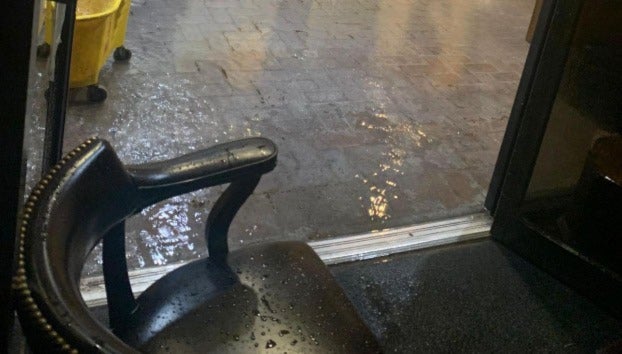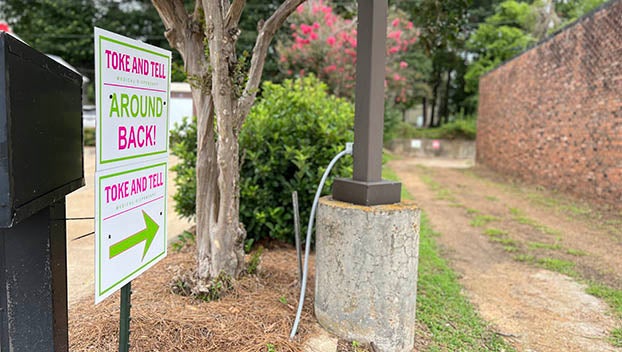County jail tested for bacteria; ACSO employee tested positive for Legionnaire’s
Published 12:13 am Friday, December 19, 2014
NATCHEZ — Adams County officials had the Adams County Sheriff’s Office jail and administration building tested for the bacteria that causes Legionnaire’s disease earlier this month, but the tests came back negative.
Adams County Board of Supervisors President Darryl Grennell said the decision was prompted after an employee at the sheriff’s office tested positive for Legionnaire’s.
“The sheriff came forward to the board when he had an employee who tested positive for it,” Grennell said. “Without hesitation, the board authorized the county administrator to go ahead and locate companies to test the building.”
Legionnaire’s disease is a particularly intense form of lung inflammation — often resulting in pneumonia — caused by the legionella bacteria. It isn’t spread through interpersonal contact, but rather through the breathing of the bacteria.
Mayfield said he first became aware of the legionella infection approximately four weeks ago. The sheriff declined to name the employee affected, citing medical privacy laws, but said the employee’s doctor won’t allow them back in the building.
A two-person outbreak of travel-related Legionnaire’s disease was traced to a hot tub in Oxford earlier this year, but a Mississippi Department of Health spokesperson said earlier this month the department does not have an investigation in Adams County and has not in several months.
The county paid Occupational Safety and Environmental Associates (OSEA) of Charlotte, N.C., approximately $9,000 to conduct the test.
Grennell said the company was chosen from a list of companies recommended by the Mississippi Department of Environmental Quality.
“This company had one of the best portfolios in terms of testing for legionella,” Grennell said.
Grennell is a professor of microbiology at Alcorn State University, and met with the tester when he was on-site in Adams County.
“When I looked at the specifications, I said, ‘That is the proper testing.’ Just talking about the protocol, it was correct.”
In an email to ACSO Jail Administrator Ed Tucker dated Dec. 8, OSEA Vice President of Operations Gregory Santo said tests did not find any indications of exposure to the bacteria in the areas sampled.
“We did find evidence of elevated mold growth in all of the other areas, and are presently researching the speciation for options that we will recommend,” Santo wrote in the email.
Mayfield has in the past said mold is a significant issue in the jail. The building’s ducts have been cleaned, but mold is infesting some inaccessible places, he said.
“That is our biggest problem,” Mayfield said. “The Legionnaire’s thing is not as big a problem to me as the whole building is infested with mold — it is in all the walls.”
Mayfield said bringing the issue to the supervisors’ attention is not part of a crusade for a new jail or new offices, an issue he has raised in the recent past because he wants to have all of the sheriff’s office and Metro Narcotics offices consolidated.
“I am just telling (the supervisors) what the problems are,” he said. “I am not saying (Legionnaire’s or toxic mold) is here. I am not saying it’s not. It is our job to make it known that something has got to be done.”
Grennell said the board will wait for the final report — which should come in a couple of weeks — before deciding what to do because the mold in question may not be a health-threatening mold.
“Fungi is all over the place — even when you walk outside in the open air — and it really depends on what species it is,” Grennell said. “(Santo) sent those cultures from those colonies off to figure out what kind of fungi it is and how it can be abated.”
If the building had tested positive for legionella, the county would have been compelled to take immediate action, Grennell said.
Santo did not return a phone message left Thursday.





